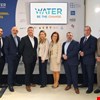
/ Mediterranean
The MedProgramme continues its efforts to assist Lebanon in advancing with sustainable natural resources management and water, food and energy security
The 2nd Multi-stakeholder Consultation in Lebanon consolidated MedProgramme’s engagement towards sustainability in the Mediterranean Region through the promotion of synergistic efforts among the Water-Energy-Food-Ecosystems (WEFE) Nexus approach, the preparation of a strategy for Integrated Coastal Zone Management (ICZM) and conjunctive surface and groundwater management interventions.

/ Mediterranean
A determined step forward for the adoption of the Gender Transformative Approach in water security and climate resilient investments by AIP WACDEP-G project in Tunisia
High-level representatives from Tunisia’s central government and stakeholders actively engaged on fruitful discussions on transformative change in gender equality in water and climate resilient policies.
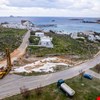
/ Mediterranean
Turning air into water, in the water-scarce island of Folegandros
The installation of the innovative 'Zero Drop water cooler' marks the completion of GWP-Med's Zero Drop program in Folegandros, which boosted the island's water supply by an additional 42.000.000 litres of water annually.

/ Mediterranean
Developing a Nexus safety net for Lebanon’s natural resources: tangible solutions to assist the country’s sustainable recovery
Under the GEF/UNEP MedProgramme, a Nexus Policy Dialogue for Lebanon based on a Nexus Assessment, led by GWP-Med aims to promote tangible solutions contributing to the security of water, energy and food resources, while protecting valuable ecosystems and their functions.
/ Mediterranean
PRIMA Acquaount project - promoting IWRM in agriculture through IoT technologies
GWP-Med is leading Work Packages on Policy & Governance, and Stakeholder Engagement in the new PRIMA Acquaount project aims at promoting IWRM at macro and micro levels through the use of innovative digital tools.
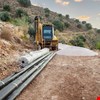
/ Mediterranean
Application of tangible WEFE Nexus nature-based solutions in 6 pilot farms in Jordan and Palestine is underway under the MENA Matchmaker II project
The Union for the Mediterranean and SIDA funded ‘MENA Water Matchmaker II' project which is implemented by GWP-Med, is applying innovative nature-based Water-Energy-Food-Ecosystems Nexus solutions in 6 farms in Jordan and Palestine in order to improve water management and enhance climate resilience in some of the most water scarce areas in the world.
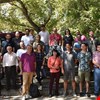
/ Mediterranean
A field trip to Greece's agricultural heartland uncovers WEFE Nexus challenges and opportunities.
Organised within the framework of the Horizon 2020 REXUS project, whereby
GWP-Med is leading the Communication and Dissemination Component, the Pinios field trip laid bare the challenges and opportunities of Greece's most productive agricultural basin.
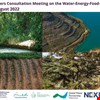
/ Mediterranean
MedProgramme: Mapping opportunities and benefits of the WEFE Nexus approach for environmental security in Lebanon
Participants in the 1st Multi-Stakeholders Consultation Meeting on the Water-Energy-Food-Ecosystems (WEFE) Nexus organised on the framework of the "GEF/UNEP MedProgramme: Enhancing Environmental Security", acknowledged the need for a better integration of approaches related to the four sectors, including through the establishment of a systematic dialogue among the relevant actors.
